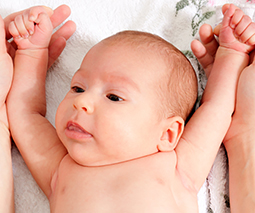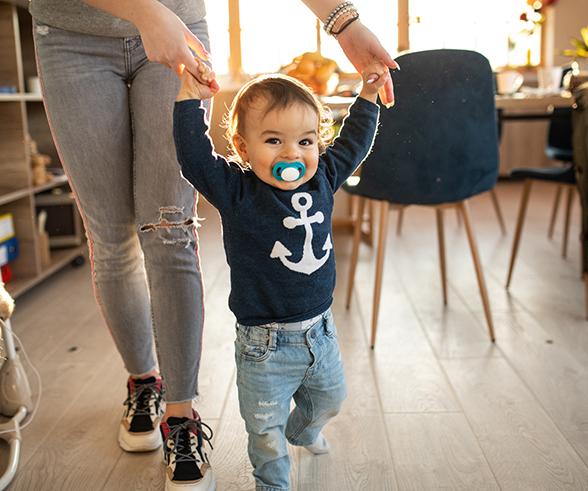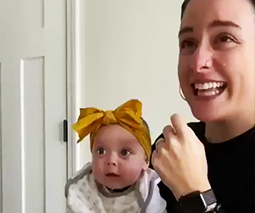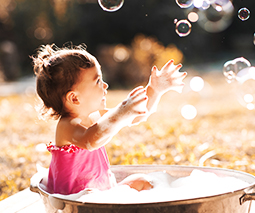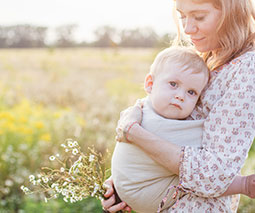Would RIE parenting work for your family? Maybe you’re doing it now?!

RIE parenting has been around since the late 1970s and it has some fairly robust ideas about what’s best for babies.
What is RIE parenting?
Pronounced “wry” the RIE is an acronym for Resources for Infant Educarers and it was carefully formulated by paediatrician Dr Emmi Pikler and early childhood educator Magda Gerber.
It’s a very hands-on and communicative style of parenting that’s been adopted by some fairly high profile types.
Stars like Tobey Maguire, Penélope Cruz, Helen Hunt, as well as Felicity Huffman and William H Macy (ummmm!) have all been proponents of this way of raising kids.
“RIE takes you back to basics. RIE makes us all better. Better parents. Better partners. Better people,” actor Jamie Lee Curtis told Vanity Fair.
The Simpsons voice-over artist Hank Azaria has gone on the record to explain that “I wanted some kind of a rule book that told me how to handle every situation with an infant. RIE is the closest thing that I have found to this holy grail.”
7 steps to RIE
So what does this supposed holy grail of parenting styles encourage? What’s in the rule book?!
Lots of things, it turns out. The basic principles of RIE are as follows:
1. Respect
RIE nurtures respect between parent and child every time they interact. “Treat even the youngest infant as a unique human being, not as an object,” their guidelines say.
2. Authenticity
Children who feel secure, connected and competent can be their true selves this parenting ethos suggests, noting that being seen as autonomous is also very important. It’s these building blocks of parenting that confirm and nurture a child’s “whole personality” RIE proponents say.
3. Trust
RIE suggest that parents trust their baby or child to explore their environment within his or her own limits and grow more competent and confident. It’s important to provide “the infant with only enough help necessary to allow the child to enjoy mastery of her own actions.”
4. Observation
RIE encourages careful observation of small children, with the view that this will help parents get to know their child more intimately. Through this careful observation, parents can create an environment where kids can learn at their own pace without too much intervention from mum or dad.
5. Interactive caregiving
Whether you’re changing a nappy or feeding your child, RIE suggests that parents should be all in and distraction-free. An unhurried, two-way exchange is encouraged, even when doing the most mundane of tasks, and chatting through everyday chores with your child – without dumbing things down or using baby talk – provides children with information, connection and security.
6. A safe and challenging environment
“The more predictable an environment is, the easier it is for babies to learn,” the RIE folk says. But it should also be interesting and encourage exploration (and learning).
7. Time for play
RIE believes babies need plenty of time for unstructured and self-initiated play – and that this is when they learn the most.
8. Consistency
Boundaries are important in RIE too, with “defined limits and clear expectations” developing discipline.
RIE is said to involve some other more controversial ideas about raising babies too.
Vanity Fair says that the baby-raising school of thought discourages the use of toys, baby carriers, sippy cups and lots of other child-centred devices that are made to distract babies or make things easier for parents.
But really what RIE is encouraging – at the heart of its philosophy – is child-led play and sensitive unhurried parenting.
And that seems like a great idea to us (… for parents who have the time, that is!)

